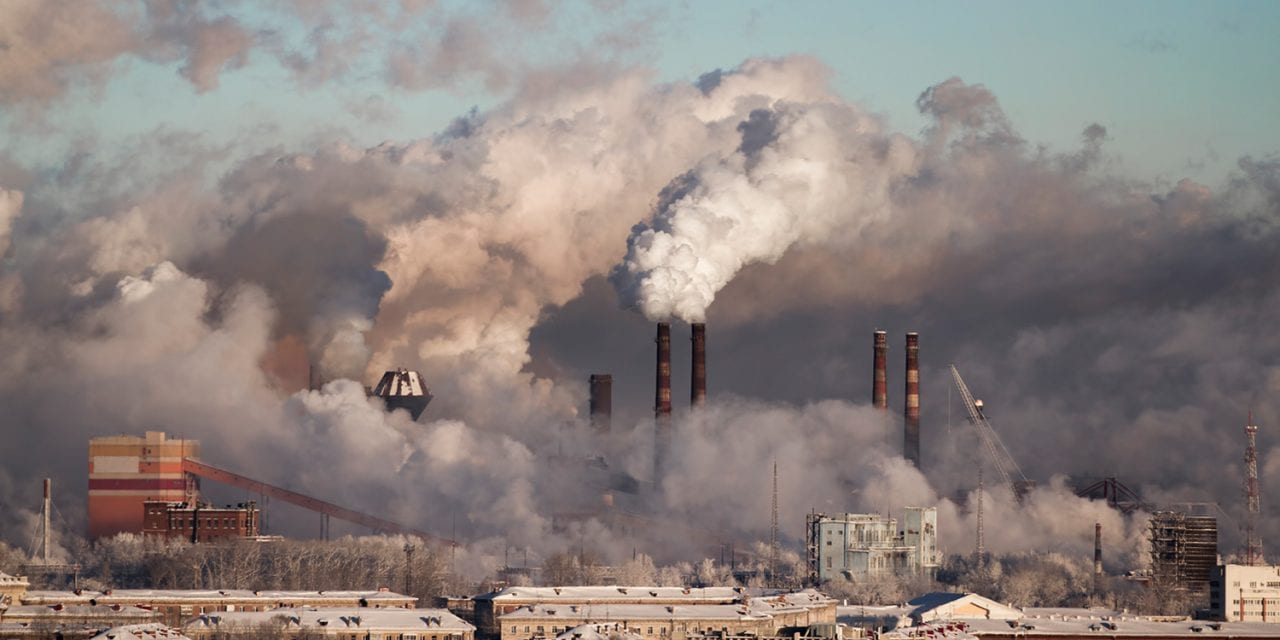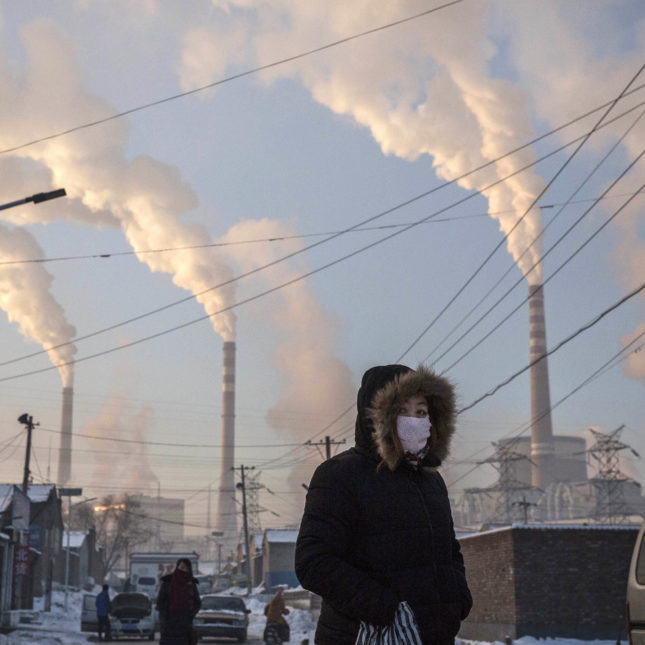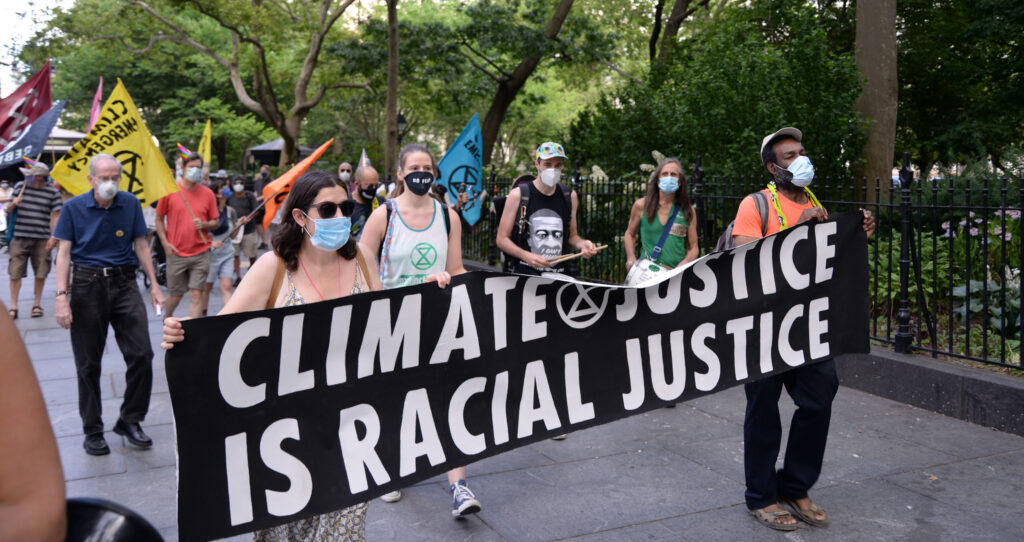Air Pollution and Climate Change 101
Victoria Whalen, ACE Fellow
|January 19, 2022

Every day, the air we breathe becomes dirtier and more polluted than ever before. From vehicle emissions to the burning of fossil fuels, our air quality is filled with harmful compounds and particulates that not only affect our planet, but also our health. From acid rain, warming global temperatures, to difficulty breathing, air pollution has a chokehold on our lives and the future of the planet.
What is air pollution?
Air pollution is broadly defined as a mix of hazardous substances from both human-made and natural sources. Air pollution can be naturally occurring, which can be seen in processes such as the decomposition of organic material or smoke in the atmosphere from wildfires. However, due to anthropogenic practices, air pollution has significantly risen over the years. These practices include the use of coal and other fossil fuels, vehicle emissions, mining for oil, and other aspects that have risen out of the industrial revolution.
According to the National Ambient Air Quality Standards (NAAQS), there are six main air pollutants that have shown to cause significant damage to the environment and public health:
- Carbon Monoxide
- Lead
- Nitrogen Dioxide
- Ozone
- Particulate Matter
- Sulfur Dioxide
Each main pollutant has several counterparts that are equally as dangerous. For example, smog (ground-level ozone) is released into the atmosphere by vehicle/factory emissions combusting fossil fuels and having a reaction due to the sunlight. Another example would be the various greenhouse gases that are often in the news. Each greenhouse gas is some varying component of the six main air pollutants, ie: Carbon Dioxide.

Air pollution & Climate Change
Climate change and air pollution go hand-in-hand with one another. Climate change can impact air quality and the air quality can impact climate change. This vicious cycle has become harder to break over the years due to fossil fuel corporations and a lack of climate change initiatives worldwide.
Air pollutants such as Black Carbon (soot), ground-level ozone, and methane are compounds that affect the amount of sunlight that reflects back into the atmosphere. These compounds often absorb the sunlight and heat, and as a result have increased the global temperatures of the planet and caused melting of permafrost, icebergs, and glaciers. The warming and melting has caused sea levels to rise, resulting in deadlier weather patterns.
Another aspect of climate change is the impact it has on airborne allergens. Climate change has caused warmer weather to last longer, which means the pollen season lasts longer. The increase in flooding and hurricanes have also created damper conditions, spawning more mold in homes and other buildings.
Air Pollution & Environmental Racism
More often than not, corporations will build their factories near communities of predominantly people of color and/or low-income residents. This is an example of environmental racism — the disproportionate impact of environmental hazards on people of color.
BIPoC (Black, Indigenous, People of Color) and low-income communities are often forced to reside in areas where the air is heavily contaminated and are more likely to develop serious health problems because of it. The Asthma and Allergy Foundation of America reports that Black Americans are 1.5 times more likely to have asthma and five times more likely to visit the emergency department due to asthma when compared to White Americans.
According to the American Lung Association, “the burden of air pollution is not evenly shared. In the United States, people of color are 1.5 times more likely to live an area with poor air quality than white people.” In order to protect these communities, a movement rose out of the civil right era that focuses on Environmental Justice (EJ). The EJ movement is defined as “all people and communities are entitled to equal protection of environmental and public health laws and regulations.”

Clean Air Act
The Clean Air Act is the United States main federal air quality law whose purpose is to reduce and control air pollution nationwide. It was first established in 1963 to fight against the negative health effects people were experiencing. Since then, it has been amended multiple times to keep up with the latest science developments and statistics, as well as set new dates and goals.
The main focus of the law was the establishment of the National Ambient Air Quality Standards (NAAQS) which is a comprehensive list of the six major air pollutants and the amount that is deemed safe in the atmosphere. Another important focus is to provide various industries flexibility with how to control emission standards as well as make them accountable for reducing their pollutants.
Over the decades, the Clean Air Act has proven that clean air is not only healthier, but also benefits the environment and economy. Studies show that cleaner air can result in 370,000 avoided premature deaths, 189,000 fewer hospital admissions, and economic benefits up to $3.8 trillion every year in the U.S.
Want to learn more? Check out the #NowOrNever Campaign
Want to read more? Check out the ACE Blog.
Join our Youth Action Network
More Blog Posts

Unnatural, Not Unprecedented
For two weeks, residents of Southern California endured a waking nightmare. Parents raced against time – hurrying down the driveway …
Read MoreCrafting a Vision for the Future: My Experience at LCOY USA 2024
Dry and sunny Tempe, Arizona where temperatures have been over 100 F for 113 consecutive days, delegates gathered to attend …
Read More
7 Ways to Weatherproof Your Home on the Cheap (+1 Not-So-Cheap)
As colder weather sets in, understanding how to weatherproof your home is key to maintaining warmth and reducing energy costs. …
Read More